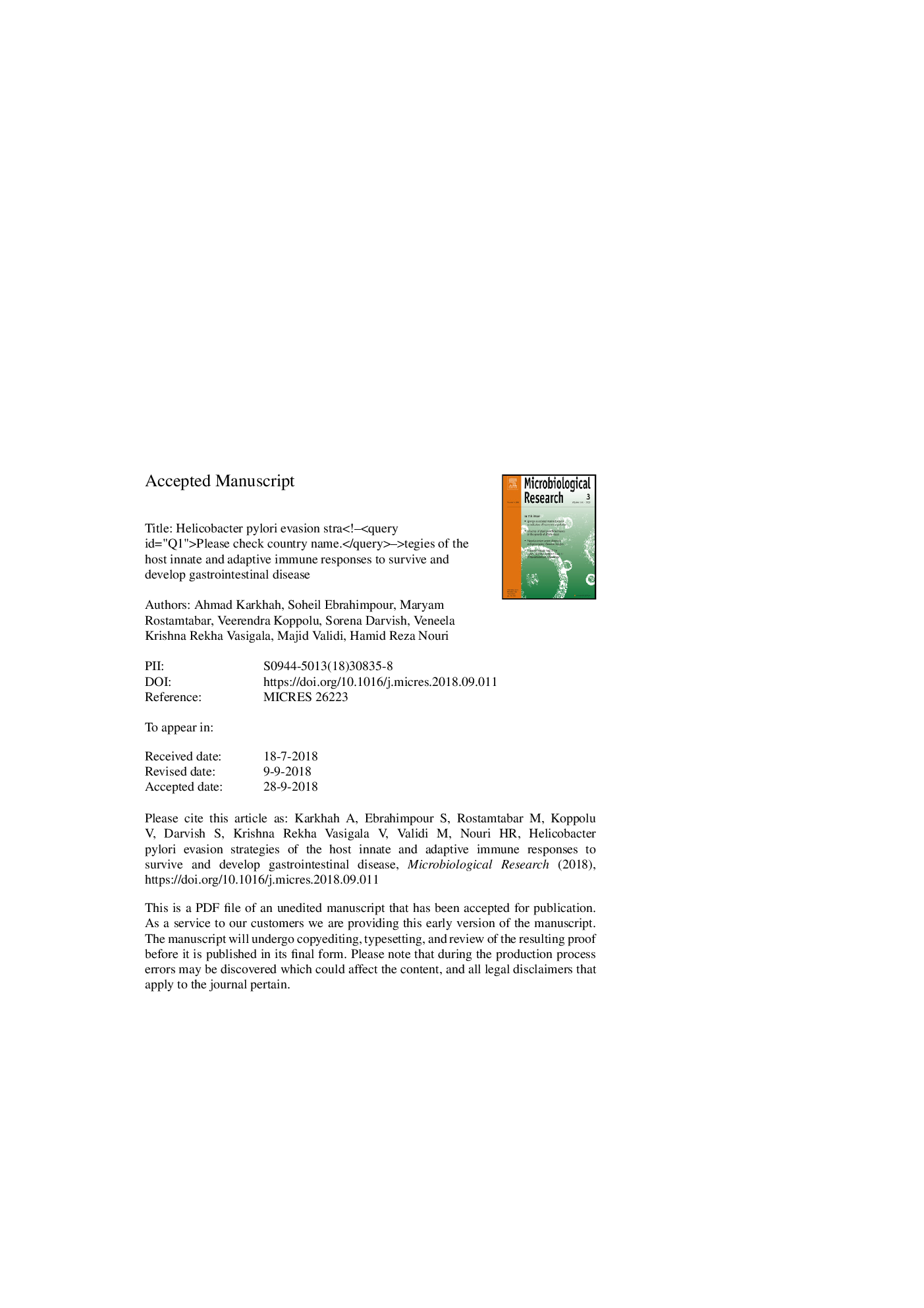| کد مقاله | کد نشریه | سال انتشار | مقاله انگلیسی | نسخه تمام متن |
|---|---|---|---|---|
| 11023162 | 1701341 | 2019 | 32 صفحه PDF | دانلود رایگان |
عنوان انگلیسی مقاله ISI
Helicobacter pylori evasion strategies of the host innate and adaptive immune responses to survive and develop gastrointestinal diseases
ترجمه فارسی عنوان
استراتژی های هشیاری هلیکوباکتر پیلوری از پاسخ های ایمنی ذاتی و سازگار برای زنده ماندن و بیماری های دستگاه گوارش
دانلود مقاله + سفارش ترجمه
دانلود مقاله ISI انگلیسی
رایگان برای ایرانیان
کلمات کلیدی
موضوعات مرتبط
علوم زیستی و بیوفناوری
بیوشیمی، ژنتیک و زیست شناسی مولکولی
بیوتکنولوژی یا زیستفناوری
چکیده انگلیسی
Helicobacter pylori (H. pylori) is a bacterial pathogen that resides in more than half of the human population and has co-evolved with humans for more than 58,000 years. This bacterium is orally transmitted during childhood and is a key cause of chronic gastritis, peptic ulcers and two malignant cancers including MALT (mucosa-associated lymphoid tissue) lymphoma and adenocarcinoma. Despite the strong innate and adaptive immune responses, H. pylori has a long-term survival in the gastric mucosa. In addition to the virulence factors, survival of H. pylori is strongly influenced by the ability of bacteria to escape, disrupt and manipulate the host immune system. This bacterium can escape from recognition by innate immune receptors via altering its surface molecules. Moreover, H. pylori subverts adaptive immune response by modulation of effector T cell. In this review, we discuss the immune-pathogenicity of H. pylori by focusing on its ability to manipulate the innate and acquired immune responses to increase its survival in the gastric mucosa, leading up to gastrointestinal disorders. We also highlight the mechanisms that resulted to the persistence of H. pylori in gastric mucosa.
ناشر
Database: Elsevier - ScienceDirect (ساینس دایرکت)
Journal: Microbiological Research - Volume 218, January 2019, Pages 49-57
Journal: Microbiological Research - Volume 218, January 2019, Pages 49-57
نویسندگان
Ahmad Karkhah, Soheil Ebrahimpour, Maryam Rostamtabar, Veerendra Koppolu, Sorena Darvish, Veneela Krishna Rekha Vasigala, Majid Validi, Hamid Reza Nouri,
